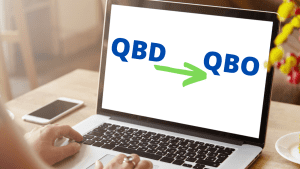Executive Summary
Many CPA firms prefer to use their own proprietary formats for their clients’ financials. It’s a form of branding. Sometimes, a single accountant will favor his or her financial report layout over the one used in the office next door. That’s also a kind of branding, and while one format might be more elegant than another, differentiation is not efficient. Changing the numbers to beautifully fit a report’s layout can lead to errors and extra handling costs. Henry Ford once said, “You can have any color car you want, as long as it’s black.” That is extreme. However, there are some benefits to be had from being boring.
Boring can simply mean repetitive, and that’s a good thing for financial reports. For this purpose, we feel that Caseware International, Inc. offers established software solutions that blend accounting and audit services to help every CPA firm achieve its profit goals. Profits grow from having the firm’s clients being happier and the firm’s staff CPAs working smarter. The firm’s clients can make decisions confidently based on audited reports.
Most CPA firms delivering financial statements to their clients don’t want to rock the boat. They say their clients don’t want something different. Bottom line, it’s a hard sell to get people to change. However, the plusses outweigh the minuses. The five reasons for using a financial reporting tested software solution are:
- Greater Consistency
- Enhanced Accuracy
- Superior Audit Trails
- Cost Savings
- Confidence/Defensibility
This post will explore each reason in detail and will give CPA firms some pointers on how to “sell” the new software to the firm’s accountants and their firms’ clients. Meanwhile, we know change isn’t easy, but it might be the right time to make the switch. Finally, we will discuss why Caseware is our favorite.
Five Reasons for Using Tested Software Solutions for Financial Reports
1. Greater Consistency
The secret is automation, but a culture change comes before that. Everyone must agree to agree on a “template” where every balance sheet is similar for every client (within reason). Inventory would not be needed for a service company, certainly. However, each asset and liability type is listed in the same place on every balance sheet—every line item for every P & L falls in the same spot. Or, for instance, ASSETS is always all caps, not Assets. The goal is standardization, and although some customization is allowed, the template concept is vigorously defended. A technology-assisted financial reporting solution delivers more accurate, consistent comparisons from Company A to Company B, Year Five to Year Ten, and Company A’s U.S. operations with their subsidiary in Australia (using IFRS) if they are on the same accounting method, i.e., GAAP vs. IFRS.
Beauty is in the eye of the beholder. This can also be said for preferences when developing client deliverables like the financial statements. While you may think you have a firm standard “branding” of these deliverables when using Word or Excel as your medium, in reality, this is usually not the case. Every bold, indent, italic or font change is time and money. While it may seem small, count this up over the course of a year on every set of financial statements and suddenly it is no longer insignificant. A good financial reporting solution enables you to focus on the content and forget about the formatting preferences that creep in. Resulting in consistent deliverables across years and clients.
2. Accuracy
A computer program puts the same entry in the same place. Every time. The calculation of an expense is done quickly and correctly. Computers don’t forget to “carry the one.” Computers don’t enter a figure into a cell in Excel by hand to make the column add up correctly. Rounding is consistently applied. Implemented correctly (through good training and strong support), the computer software program promises accuracy in the creation of the financial statements.
3. Audit Trails
“Where did that figure come from?” The spreadsheet looks like the entry is “correct,” but on closer examination, it’s not quite right. The auditor asks for the backup, so the accounting clerk digs through the files. The auditor sees the figure from the last report, but it’s not right either. The accounting clerk goes to the basement where the file box from a year ago is stored. “Nope. It still doesn’t look right.” An exaggeration, perhaps, but a computer’s file boxes are not in the basement. They’re right here. And how much did it cost to send the accounting clerk to the basement?
4. Cost Savings
Speaking of clerks in basements, the cost savings from an automated financial reporting solution accrue to the CPA firm’s payroll because hand entries cost more. Not abacus and handwritten slow, but Excel Spreadsheet and Microsoft Word reporting slow. The cost savings from automation can be enjoyed at the client’s company as well. In both instances, the reporting is laborious, and the spreadsheets are fraught with “hurry-up” risks. The pressure to get the reports done can tempt the best-intentioned to make adjustments that don’t always capture correctly or get reported accurately. Fewer mistakes mean fewer re-dos. Fewer re-dos mean less expensive audits and happier clients, more profits, trust, and firm growth.
5. Defensibility
It’s almost sad to say we’re trusting computers more than humans. But we humans make mistakes. If we had all the time in the world to check and double-check every column, by hand and the money to pay people to do that, it might be okay to shun the software program and defend our honor as the superior being. However, properly programmed computers that have software developed over years of experience and dependability make it easy for CPA firms to defend their use of them and stand behind the reports and services they provide their client firms. It sometimes takes salesmanship to get people to shift their beliefs.
Tips on Selling the Change to the Staff and Clients
The following speech (or a variation) can be delivered to the firm’s accountants and a version of it to its clients.
“We’ve been introduced to a new way of handling our financial reporting. We have researched financial reporting solutions companies, and we think Caseware, International, Inc. is the best. It is feature-rich and its financial reporting solution has been around for 15+ years, unlike some of its newer competitors.” To your employees, you say, “Your jobs will be easier, our clients will see more consistency in their reports, and we will be less stressed because the software will do much of the work for us.” To the clients, you say, “We know you’ve liked how we have been delivering your financial reports, but we think we have a better way. We are staying current with technology to assure you the best services, at a competitive price, that will continue to support compliance with financial reporting standards.
Conclusion
Technology can be challenging. It’s making all of us change every hour of every day. And yet, a software solution that will supply greater consistency, enhanced accuracy, superior audit trails, cost savings, and increased confidence/defensibility is difficult to turn down. In the beginning, resistance will be high for the firms’ staff. “We’ve always done it this way.”
But the positives will come from reduced workforce hours that will lower expenses and increase profits. Stress is reduced. Confidence is increased. And financial reporting should be a breeze. For your clients, a Caseware solution will mean more time to look at what the numbers say and make decisions from them instead of worrying about formatting. By the way, the newer companies are cloud-based, the wave of the future. However, they don’t offer the depth of services and functionality offered by Caseware and don’t have 30+ years of experience in the field.
The technology group at LSL CPAs has worked with many CPA firms that love to do what they’ve been doing the way they’ve been doing it for decades. There’s comfort in it. Technology and automation are here to stay. CPA firms are not the only companies looking at ways to keep their employees and their clients in the face of increasing competition. LSL CPAs can help the transition from Excel and Microsoft Word to Caseware Financials. We have many happy clients that have made the switch. Contact us today.
Jack Welch (former 20-year CEO of General Electric) said, “Change before you have to.”
Tested Software Solutions




